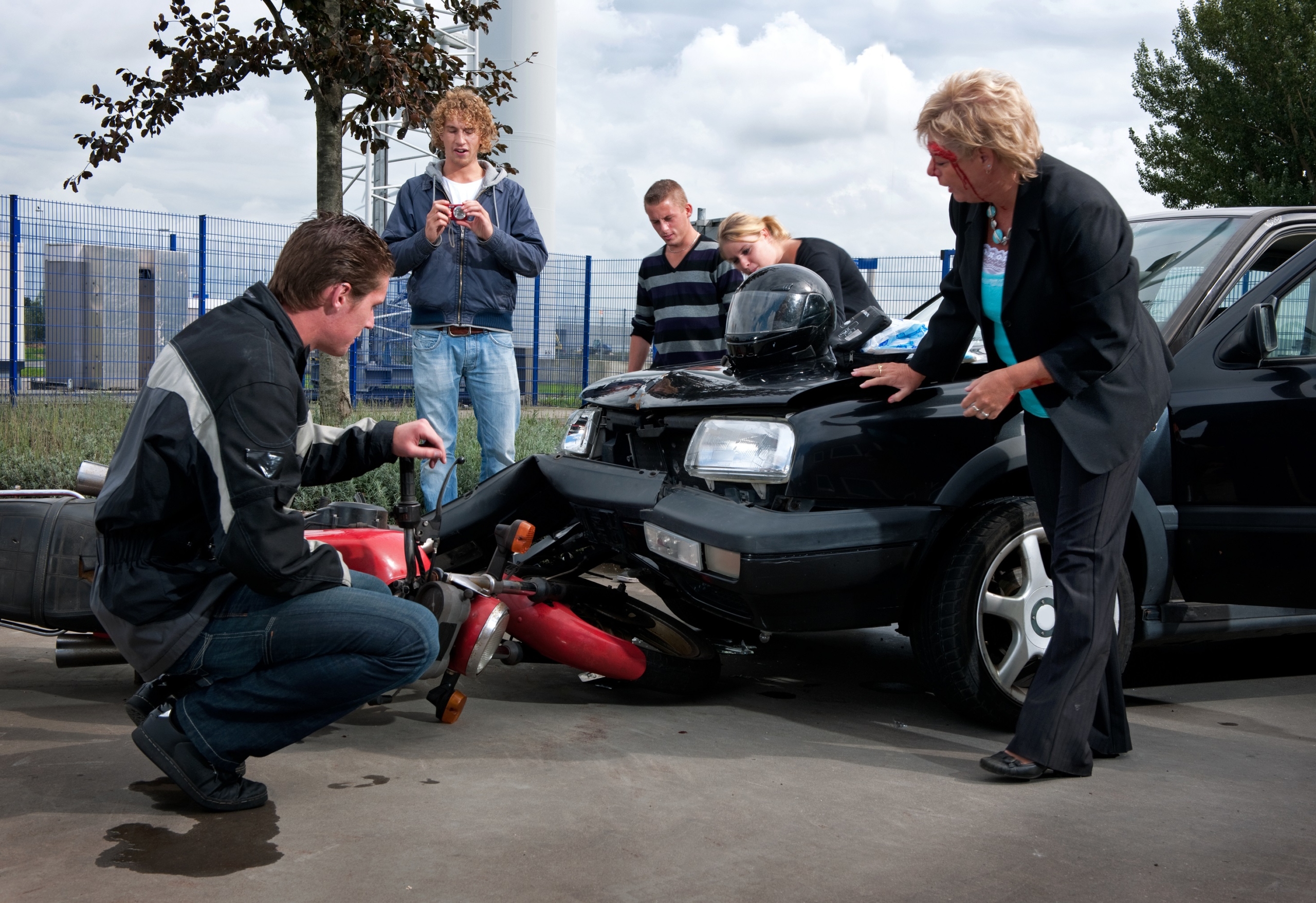The Role of an Accident Attorney, Accident attorneys play a crucial role in helping people cope with the aftermath of accidents. In the aftermath of a collision, an accident attorney plays a crucial role in car accident cases.
Understanding the Role of an Accident Attorney
An accident attorney is a legal professional specializing in personal injury law, with a focus on cases involving car accidents. Individuals who have been injured or suffered losses due to the negligence or recklessness of another party are represented by lawyers. Accident attorneys possess specialized knowledge of traffic laws, insurance policies, and personal injury litigation, enabling them to effectively advocate for their clients.
The scope of an accident attorney’s work is begun the moment help is sought by a client and may be extended through negotiations, settlements, or even courtroom trials. Fair compensation for their client’s losses, which may include medical expenses, property damage, lost income, pain and suffering, and other damages, is sought to be secured by them as their goal.
To achieve this, they undertake a range of tasks, from investigating the accident to negotiating with insurance companies and, if necessary, representing the client in court.
Initial Consultation and Case Evaluation
The journey with an accident attorney typically begins with an initial consultation, which is often offered free of charge. During this meeting, the attorney evaluates the case by listening to the client’s account of the accident, reviewing any available evidence (such as police reports, medical records, or photos), and assessing the potential for a successful claim. This step is crucial, as it helps determine whether the case has merit and what legal strategies might be effective.
The attorney also uses this opportunity to explain the legal process, outline potential outcomes, and set realistic expectations. For clients who may be overwhelmed or unfamiliar with the legal system, this consultation provides clarity and reassurance. If the attorney believes the case is viable, they will typically agree to represent the client, often on a contingency fee basis, meaning the attorney is paid only if the case is won or settled.
Investigation and Evidence Gathering
Once retained, an accident attorney conducts a thorough investigation to build a strong case. This involves collecting and analyzing evidence to establish liability and quantify damages. Key tasks include:
- Obtaining Official Reports: The attorney secures police reports, which detail the circumstances of the accident, witness statements, and any citations issued.
- Interviewing Witnesses: Eyewitness accounts can corroborate the client’s version of events, so attorneys may contact witnesses to obtain formal statements.
- Consulting Experts: In complex cases, attorneys may hire accident reconstruction experts, medical professionals, or engineers to provide testimony on the cause of the accident or the extent of injuries.
- Gathering Documentation: This includes medical records, repair estimates, and proof of lost wages to demonstrate the financial and physical impact of the accident.
This meticulous process ensures the attorney has a comprehensive understanding of the case, which is essential for negotiating with insurance companies or presenting a compelling argument in court.
Navigating Insurance Company Negotiations
One of the most critical roles of an accident attorney is dealing with insurance companies. After a car accident, victims often face pressure from insurers to accept quick, lowball settlement offers. These offers may not fully cover medical expenses, future treatments, or other losses. An experienced accident attorney acts as a buffer, protecting the client from tactics designed to minimize payouts.
The attorney begins by submitting a demand letter to the insurance company, outlining the client’s injuries, damages, and the amount of compensation sought. This letter is supported by evidence gathered during the investigation. The insurance company may respond with a counteroffer, leading to a negotiation process. The attorney’s expertise in valuing claims ensures that they push for a settlement that reflects the true extent of the client’s losses.
In cases where the insurance company refuses to offer a fair settlement, the attorney may advise filing a lawsuit. This decision is made in consultation with the client, weighing the potential benefits of litigation against the time and costs involved.
Litigation and Court Representation
While many car accident cases are resolved through settlements, some proceed to litigation when a fair agreement cannot be reached. In these instances, the accident attorney’s role shifts to that of a litigator. They prepare the case for trial by:
- Filing Legal Documents: The attorney drafts and files a complaint, which formally initiates the lawsuit and outlines the plaintiff’s claims.
- Conducting Discovery: This phase involves exchanging information with the opposing party, including depositions, interrogatories, and requests for documents.
- Preparing for Trial: The attorney develops a trial strategy, prepares witnesses, and organizes evidence to present a persuasive case.
- Representing the Client in Court: During the trial, the attorney argues on behalf of the client, cross-examines witnesses, and presents evidence to prove liability and damages.
The attorney’s courtroom experience is vital, as trials can be complex and emotionally charged. Their ability to articulate the client’s story and counter the defense’s arguments can make the difference between a favorable verdict and an unfavorable outcome.
Advocating for Fair Compensation
A central objective of an accident attorney is to secure compensation that fully addresses the client’s losses. Damages in car accident cases are typically divided into two categories:
- Economic Damages: These include tangible losses such as medical bills, rehabilitation costs, property damage, and lost wages.
- Non-Economic Damages: These cover intangible losses like pain and suffering, emotional distress, and loss of quality of life.
In cases involving severe injuries or wrongful death, attorneys may also pursue punitive damages to punish egregious behavior, such as drunk driving. Calculating the value of these damages requires a deep understanding of legal precedents, medical costs, and the long-term impact of injuries. An experienced attorney ensures that all relevant factors are considered, preventing clients from being shortchanged.
Providing Emotional and Practical Support
Beyond their legal expertise, accident attorneys often provide emotional and practical support to clients. Car accidents can be traumatic, leaving victims feeling overwhelmed, anxious, or uncertain about the future. Attorneys offer guidance and reassurance, helping clients navigate not only the legal process but also the challenges of recovery. For example, they may refer clients to medical specialists, coordinate with insurance providers, or assist with paperwork, allowing clients to focus on healing.
This supportive role is particularly important for clients who may feel intimidated by the legal system or pressured by insurance companies. By taking on the burden of legal and administrative tasks, attorneys empower their clients to move forward with confidence.
The Broader Impact of Accident Attorneys
Accident attorneys do more than represent individual clients; they contribute to a broader system of accountability and justice. By holding negligent drivers and insurance companies accountable, they promote safer roads and fairer practices. Successful lawsuits and settlements can also set precedents that influence future cases, shaping the legal landscape for personal injury law.
Moreover, accident attorneys advocate for systemic change by exposing patterns of negligence, such as poorly designed roadways or defective vehicles. Their work can lead to improvements in public safety, benefiting society as a whole.
Choosing the Right Accident Attorney
Given the critical role of an accident attorney, selecting the right one is essential. Clients should look for attorneys with:
- Experience: A proven track record in car accident cases demonstrates the attorney’s ability to handle complex claims.
- Communication Skills: The attorney should explain legal concepts clearly and keep the client informed throughout the process.
- Reputation: Reviews, testimonials, and professional accolades can indicate the attorney’s reliability and success rate.
- Compassion: A good attorney empathizes with the client’s situation and is committed to their well-being.
Many attorneys offer free consultations, allowing potential clients to assess whether the attorney is a good fit before committing.
Conclusion
The role of an accident attorney in car accident cases is both comprehensive and indispensable. From investigating the accident and negotiating with insurance companies to representing clients in court and advocating for fair compensation, these professionals provide critical support to individuals navigating the aftermath of a collision. Their expertise ensures that victims are not only compensated for their losses but also protected from exploitation by powerful insurance companies or opposing parties.
Beyond their work with individual clients, a safer and more just society is contributed to by accident attorneys through the holding of wrongdoers accountable and the advocating for systemic improvements. For anyone involved in a car accident, the difference between a stressful, uncertain outcome and a resolution that supports recovery and justice can be made by partnering with a skilled accident attorney. By understanding the full scope of an accident attorney’s role, informed decisions can be made by victims and the first step toward reclaiming their lives can be taken.



